#and the way they keep switching pronouns for tachibana also makes me normal
Text
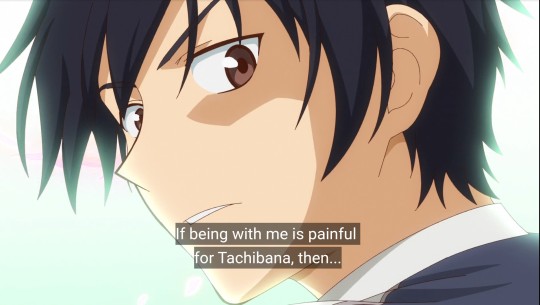
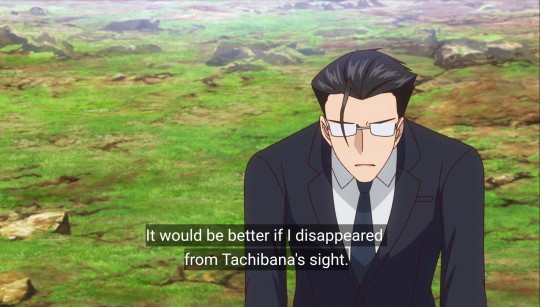
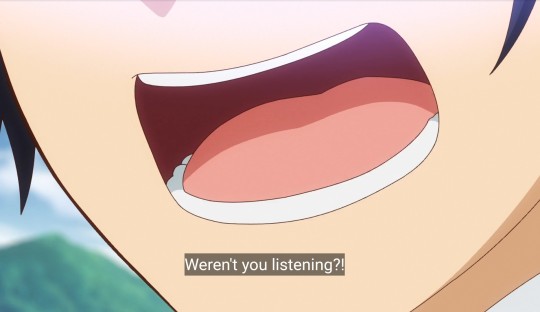
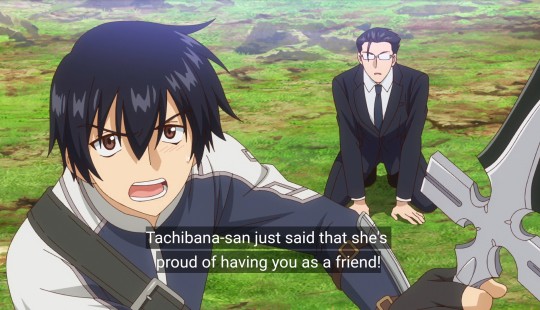


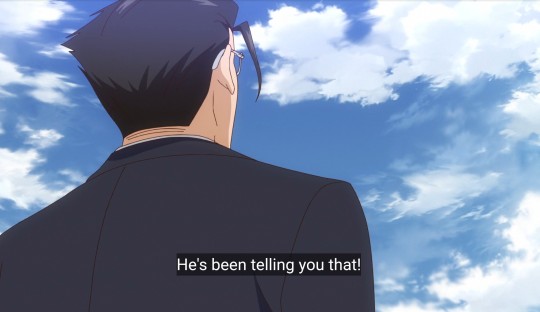
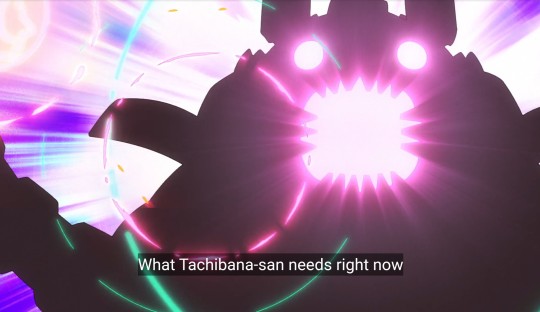
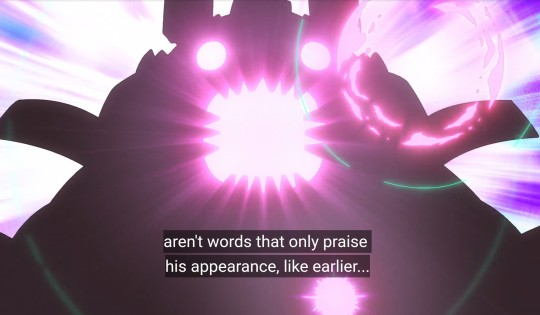
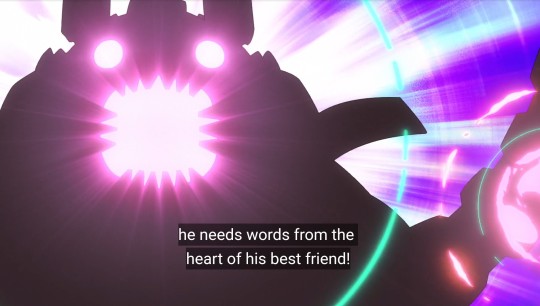
Those words don't come out unless you feel them from the bottom of your heart! Right now, Tachibana-san isn't acting normal, no matter how you look at it. Jinguuji-san, if you two fight and split up while she's in that state, Tachibana-san will absolutely regret it!
#schwartz i love youuuuuuuu#the only sane bitch here with emotional intelligence#godddd im so fucking normal about them#i promise im normal#and the way they keep switching pronouns for tachibana also makes me normal#SBSUSINDJDJDUSBSHD#IM SCREAMING#fabiniku
18 notes
·
View notes
Text
Your Name - 君の名は - Review

(Image source: Funimation)
Your Name, known in Japanese as Kimi no Na wa (君の名は)and written and directed by the brilliant Makoto Shinkai, is not only one of the highest-grossing films ever in Japan, but an artistic and emotional masterpiece which keeps giving more just when you thought there is nothing else it can possibly offer. Although it was released in the summer of 2016, I did not first experience it until the fall of 2017 and have since watched it multiple times – it never fails to make me cry. With the combination of Shinkai's beautiful direction and vision, the gorgeousness of the animation, and the soundtrack written by the Japanese band, Radwimps, which turns each scene into a perfectly timed music video, it is a must-watch. Far from being just “one of the best teen movies in years” as labeled by David Sims of The Atlantic, it is one of the best movies in years, period. To get just a taste of the experience of Your Name, listen to the soundtrack here as you read!
Your Name focuses on Taki Tachibana, a young man commuting to high school each day and working a part-time job as a waiter in the flurry of Tokyo city life, and Mitsuha Miyamizu, a high schooler living in the rural town of Itomori next to Tokyo who assists her grandmother and younger sister with running the family shrine. Mitsuha, who is somewhat fed up with the lack of anything in her small town wishes to live in Tokyo as an ikemen, or handsome boy – and she gets her wish. For reasons unknown, Mitsuha and Taki end up switching bodies repeatedly, living each others lives on random days and improving them as much as messing them up. The two learn to communicate with each other through leaving messages in their phones, and they establish a friendly, sometimes tumultuous, rhythm. However, Your Name is much more than a switching bodies rom-com – there are many cultural facts and themes which appear in the film and contribute to its plot and beauty. My discussion from here on out will have some spoilers, so beware!

(Image source: Wallpaper Access)
Unexpectedly to the viewer upon first watch, Your Name is not just a romance film, but a disaster movie. SPOILERS: Although they seem to be switching bodies in real time, Taki and Mitsuha are separated by three years, and the latter actually was killed by a part of a meteor than annihilated the entire town of Itomori. In the wake of the tragic 9.0 Tohoku Earthquake of 2011 that led to nearly 16,000 deaths, Your Name is a representation of the disaster culture in Japan and how vulnerable the population is to natural forces. Earthquakes occur daily, and being surrounded by water also means the territory is afflicted by tsunamis, flooding, and a number of other disasters. They are so prominent, the government has released a guide for citizens to have a plan to handle earthquakes, buildings are built to withstand them, and there are specific drills and plans in schools to ensure safety. Japan is very focused on forethought and preparing for unknown situations, somewhat because its citizens constantly live in a state of uncertainty. Your Name shows how this is applicable when nature acts beyond anyone's expectations – part of the meteor breaks off to hit Itomori unexpectedly – but also how the people are able to join together and rise up in the face of disaster, as Mitsuha, Taki, and their friends do in developing a plan to save the town. Disaster and the potential for it is a daily part of Japanese life, but Your Name also demonstrates the necessary preparedness for it and cultural aspects of its presence in Japan.

(Image source: kiminonawalove)
Next, Your Name presents a depiction of the religion, Shinto, and its presence in Japan through Mitsuha's involvement with her family's shrine. Along with her younger sister, she acts as a miko (巫女), or female shrine maiden, and participates in dancing rituals and the making of kuchikamizake (口噛み酒), a special kind of sake where rice is is chewed, spat out, and left to ferment. Mitsuha finds her position very embarrassing, especially when she must perform her miko duties in front of the judgmental eyes of her classmates, but the shrine's large presence in her life symbolizes the more traditional side of Japan. Her grandmother's devotion to the shrine and emphasis on her granddaughters' duties to be involved in running it also emphasizes how central tradition can be to a family. This is especially in contrast with Mitsuha's father, who has left the shrine for politics and, partially due to this, has been alienated from the family. The shrine has a large influence around Mitsuha's daily life and her character, and demonstrates how religion in Japan can impact a person even when it is more of a infused cultural and familial tradition than something the practitioner actively chooses to follow on their own.
Finally, Your Name portrays various aspects of the Japanese language which may be unnoticed to English speakers, beginning with the title itself. Based upon one of the last few lines of the movie, the title can be more directly translated as “your name is?”, asking a question that is unanswered, or existing as a sentence left incomplete. For me, this adds a different connotation where the film is in search of an answer, adhering to the theme of how it takes the protagonists on a search through time and space to find each other, while the English title is more absolute and final. Names are the focus, but the feeling of each sentence is different. In other instances of language, Taki and Mitsuha must navigate their worlds when switching bodies in terms of gender due to the pronoun for the self (the English equivalent of 'I') having many forms of expression in the Japanese language. A short comedic scene occurs when Mitsuha is in Taki's body with his friends, and she cycles through a number of pronouns, searching for the one Taki normally uses. Watashi (私)is is standard, but too feminine; watakushi (私)too formal; boku (僕)is masculine but not strong enough; but ore (俺)is the perfect fit, being masculine and carrying an air of confidence from the speaker. This is a joke lost on English audiences, showing the importance of the language to the comedy itself and also demonstrating the division between genders that starkly occurs in Japan. Pronouns like 'he' and 'she' are rarely used in reference to others, and gender portrayal gets to be chosen by the speaker themselves – still, as Mitsuha experiences here, that portrayal may be evaluated by others as strange until the pronoun they deem fitting is found. You can read more about Japanese pronouns – of which there are even more! – here.

(Image source: chimis-changa)
While Your Name is a timeless classic which can appeal to audiences of any age, gender, and culture, it is still distinctly Japanese, and there are many ways that fact is highlighted throughout the movie. If you are ready to go on an emotional journey, witness gorgeous animation, or have loved the Radwimps soundtrack you hopefully have been listening to while reading this review, please pick it up! If you are still on the fence if it is worth your time, check out the music video for Sparkle by Radwimps which features scenes from the movie – it will surely make you curious for more!
1 note
·
View note